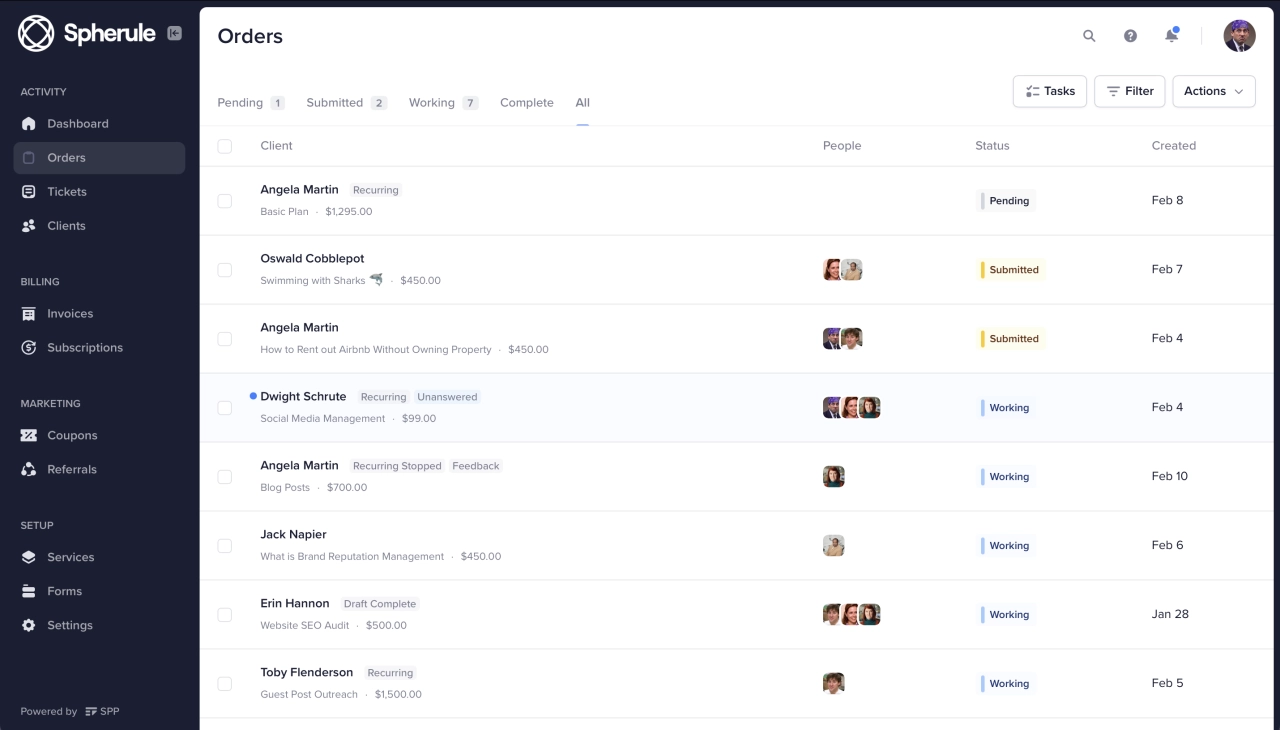Lead Generation
Lead generation is the process of attracting and converting strangers into prospects who have shown interest in your company’s services. It is the first step in building a client relationship.
Example
An agency might create a downloadable guide on client portals to capture visitor contact information and follow up with targeted marketing.
Related Terms

Ready to give it a try?
You're in good company. We've helped agencies like yours sell $500M+ in services.


